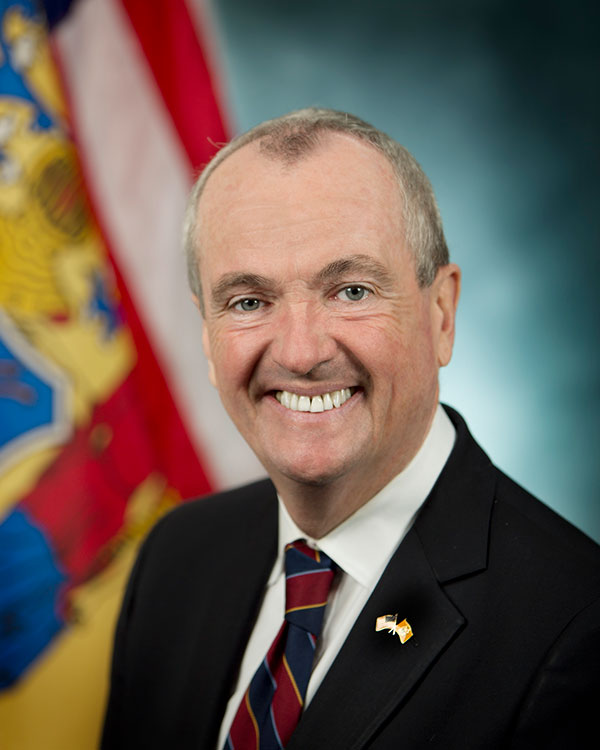A Look at NJ Governor’s Race Less Than Month From Primaries

EDITOR’S NOTE: This story first appeared in the Trenton Journal under an agreement with the NJ Black Publishers Collective.
BY SHELBY DENISE SMITH | Trenton Journal
New Jersey’s gubernatorial race is in full swing, along with voter decisions. Eleven hopefuls are racing to succeed current Governor Phil Murphy in this critical election. Primaries are just one month away, and there’s no clear winner for who will be the Democratic and Republican nominee.
Tensions are high, donor dollars are pouring in, and ads have swarmed the Garden State as candidates seek to secure the spot as their party’s nominee. Then the final countdown to November 4 begins as two leaders will face off to convince the constituents of this great state that they are the best fit to be the 58th Governor of New Jersey.
The Democratic Candidates
Six candidates are running Democrat, and five are running Republican (excluding write-ins) in the primary for Governor. What we know so far from a recent poll conducted by Rutgers’ Eagleton Institute is that Mikie Sherrill, a Democrat, is leading her party with just 17% of votes, while Jack Ciattarelli, a Republican, is leading his party with a whopping 42%. Although the Republican nomination is predictable, the Democratic nomination is uncertain. New Jersey is a blue state (though debatable after the latest Presidential election), so the competition is expected to be fiercer on the Democratic side. Therefore, each democratic candidate has had to distinguish themselves for a chance to win the public’s trust and secure the nomination.
Subscribe to the Trenton Journal newsletter and get our most current content delivered right to your inbox, for free!
Let’s start with the lead, Mikie Sherrill. For one, she’s the only woman running in this race, and as a historically progressive state, her gender creates a lot of buzz. Sherrill is also a veteran and uses her past as a former Navy pilot to brand herself as a fighter who will steer New Jersey in the right direction. She’s currently the congresswoman for District 11, where she flipped an ancestrally Republican seat by fifteen points in her first run for office in 2018. In a recent CBS News interview, Sherrill said she would prioritize building houses, utilizing solar and nuclear power, and upgrading NJ Transit services.
Current Jersey City Mayor Steve Fulop lags slightly behind Sherrill in the polls at 12%. Fulop says his race for Governor is about “reforming the Democratic Party in New Jersey” and restoring hope in Democratic leadership, as there have been many legal cases and self-serving legislation pushed from Democratic politicians in recent years. But there’s a lot of uncertainty about whether Fulop’s interests serve the people or profits. Published stories detail how he has used his position as the Mayor of Jersey City to advance the interests of big donors, mainly in the real estate sector. He’s been leading the city since 2013, and native New Jerseyans have witnessed the drastic shift in gentrification, price-gauging on property, and removal of the culture that Jersey City once fostered. There’s a concern that if elected, he’ll run the state like the money-hungry machine Jersey City has become, neglecting the people who have called New Jersey home for centuries.
Next is New Jersey Education Association president Sean Spiller at 10%. Spiller was formerly the mayor of Montclair, and his most notable achievement was a rent control ordinance. Spiller’s driving point is making New Jersey more affordable, but he doesn’t have the best track record dealing with financiers. Montclair’s CFO accused Spiller of illegally obtaining state health benefits while in office, and that’s not the only reason Montclair residents have an issue with him. Spiller prolonged the opening of Montclair schools post-COVID, which enraged parents. Therefore, voters are wary of a man who doesn’t even have favor in the city where he was mayor.
Josh Gottheimer and Ras Baraka each follow Spiller at 9%. Gottheimer is a New Jersey congressman for the fifth district who has been in that seat since 2017. He’s known for his bipartisan efforts as the Vice President of the Problem Solvers Caucus, an even-split group of Democratic and Republican congress members “committed to advancing common-sense solutions to issues facing our nation.” His involvement with the Caucus is fitting, as he’s considerably the most moderate democrat in the race and has been questioned on his allegiance to the Democratic party. Gottheimer held the distinction of voting more frequently with House Republicans (34 percent of the time) than any other congressional Democrat. The former speech writer for Bill Clinton is “running to be the lower taxes, lower costs Governor.” He has a robust plan to make New Jersey more affordable from the first day he steps into office.
Ras Baraka is the current mayor of Newark, New Jersey, the largest city in the state. Baraka is known for his contributions to reducing crime, which decreased drastically during his tenure, reaching a 60-year low in 2022. The town has undergone significant developments in the downtown area, attracting transplants and NYC commuters, changing the rhetoric from Newark being just the ‘hood’ to a ‘hot spot.’ Even in those advancements, Baraka didn’t neglect the locals, mandating that twenty percent of units in new developments must be affordable for low and moderate-income families, stating his allegiance to those who have called Newark home. He is one of the more progressive candidates, demanding equality for all New Jersey residents. He’s most recently taken over headlines for confronting security at an ICE facility during a protest.
Former state Senate President Steve Sweeney is at 7% with an unlikely chance to catch up.
The Republican Candidates
It’s plausible that New Jersey is considered a swing state after the latest Presidential election. In generations, it was the closest it’s ever been to casting its electoral votes for a Republican as Trump closed election night down just five points. Therefore, this shocking red wave has given hope to the resident Republicans of this state that there’s an opportunity to win the Governor’s race.
‘If it’s not broke, don’t fix it,’ seems to be the Republican party’s motto. Jack Ciattarelli is predicted to win the Republican nomination again with 42% of red votes. It’s the third time he’s running for Governor, and a safe option since he nearly defeated Murphy in 2021. The ‘GOP machine’ is heavily invested in his success, and the numbers prove that. His primary agenda items are to lower taxes in the state and reform the education funding formula.
Former radio host Bill Spadea comes in a distant second, with 12%. Spadea is the truest MAGA Republican in the running, echoing most of Trump’s rhetoric. As Governor, Spadea says he’d suspend bail reform and establish a strict immigration policy. The former conservative talk radio host has also described himself as “anti-homosexual,” is calling for the defunding of Planned Parenthood, and is advocating for a New Jersey version of DOGE. He was acknowledged as ‘too conservative’ for the Republican Party early in his career, but with the rise of right-wing ideologies, it seems like an ideal time for him to run.
The last Republican with buzz is New Jersey state senator Jon Bramnick. He is the more moderate candidate with a standing chance out of the three. He leads with empathy, isn’t Trump’s parrot, and has strongly criticized the Republican Party’s direction. Bramnick has substantial experience in city and state government spanning over 30 years, starting when he was elected to the Plainfield City Council. He aims to “end the one-party rule that has taken over Trenton, leading to an unending stream of mandates, tax hikes, and extreme policy, restoring balance in New Jersey.”
Just 3% of Republican voters chose Justin Barbera, and no one chose Mario Kranjac.
Keep Up With Candidates
One of the major complaints that New Jersey residents have shared on social media is the lack of coverage surrounding the Governor’s race. Due to minor media attention, constituents are not learning about the dates of debates, rallies, or fundraisers until days after events have already taken place. Breaking news has been more common than not since this current administration has been in office. As a result, legacy media’s political segments and social media accounts (ABC, CBS, NBC, etc.) have focused their attention on national news. There’s more of a focus on how potential candidates will work with Trump’s office to funnel funding and less of a concern on how they will use the legislative power they’ll have as Governor. Your best bet to keep up with candidates is to follow them on social media, keep notifications on, and sign up for their email newsletters. Before the primary, two more debates will be held. The Democratic debate on May 18 will focus on taxes, education, and transportation, while the Republican debate on May 20 will cover taxes, education, and crime.
Follow Us Today On:
Note from AC JosepH Media: If you like this story and others posted on Front Runner New Jersey.com, lend us a hand so we can keep producing articles like these for New Jersey and the world to see. Click on SUPPORT FRNJ and make a contribution that will go directly in making more stories like this available. Thank you for reading!





